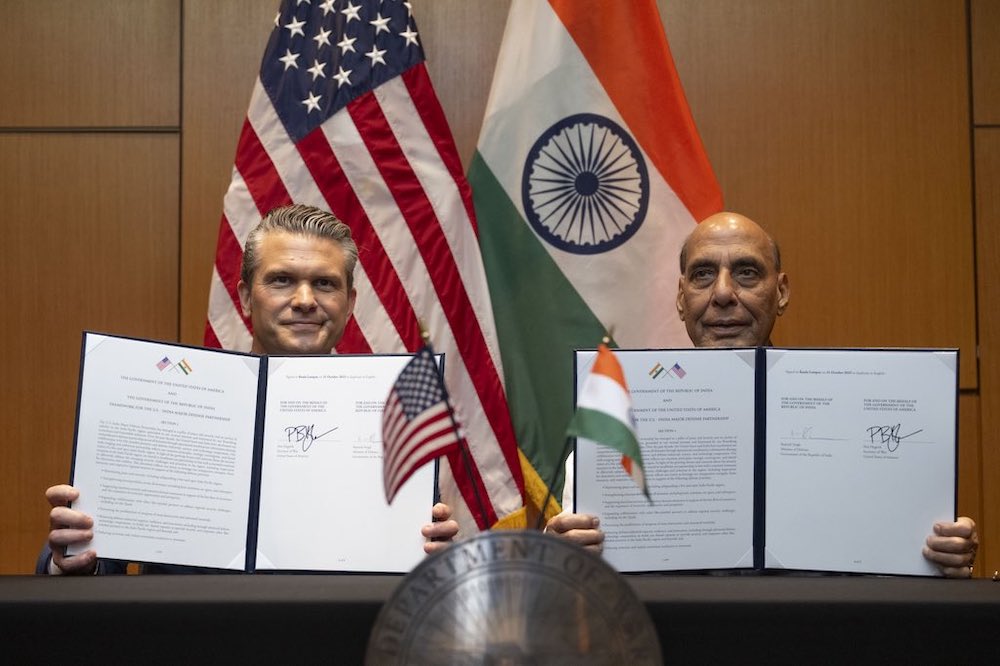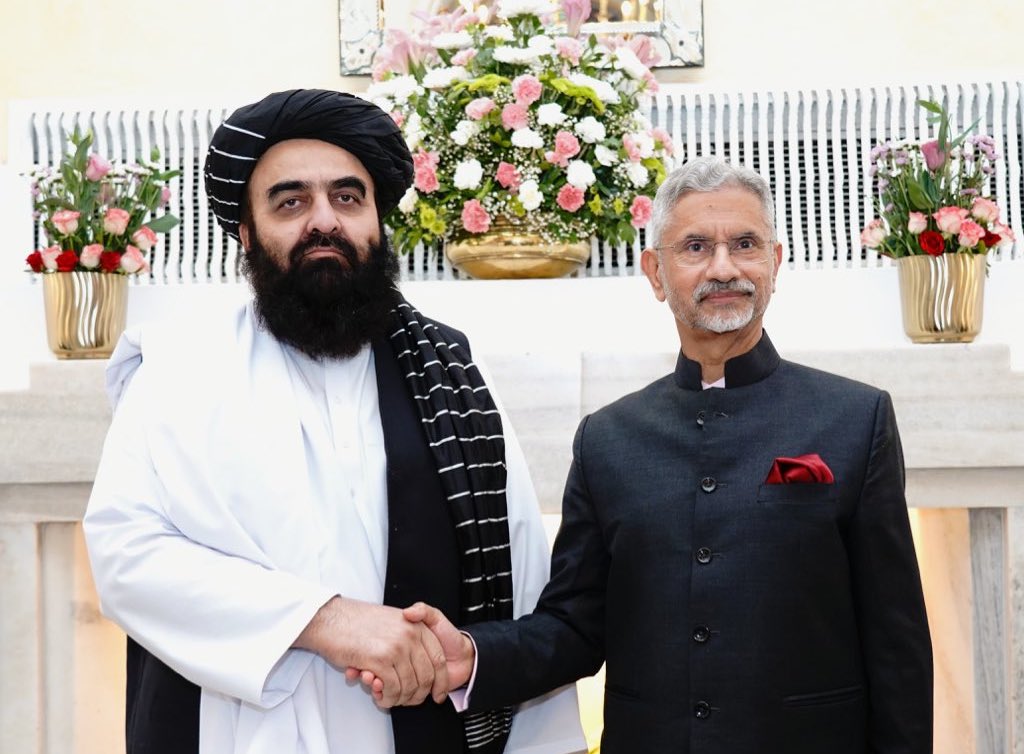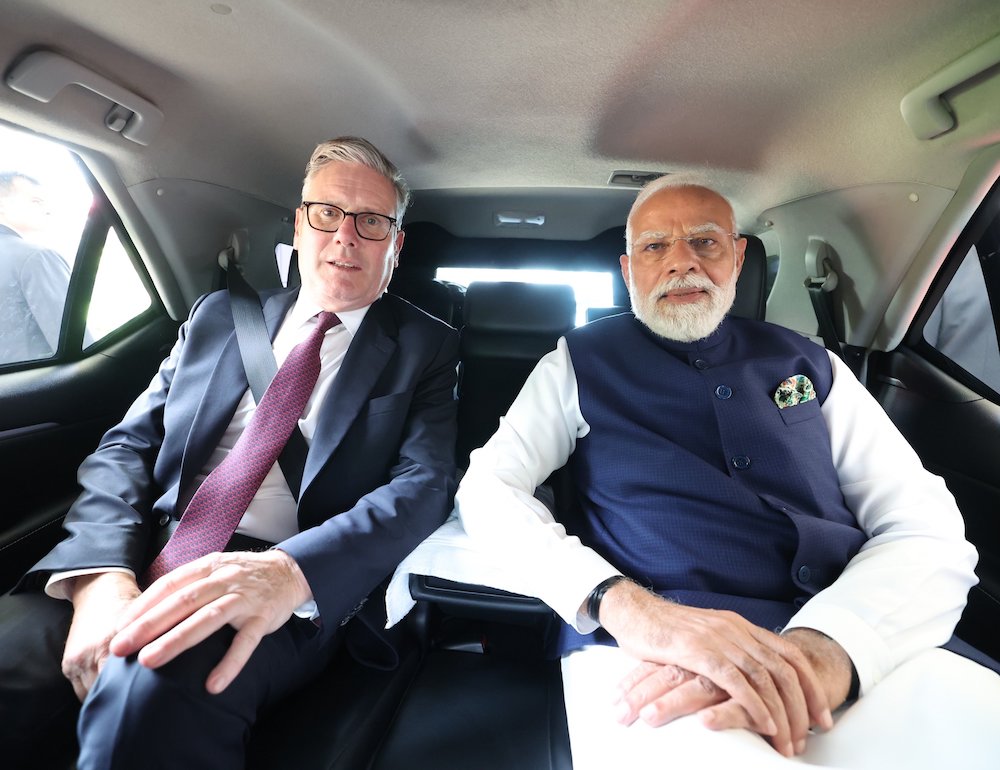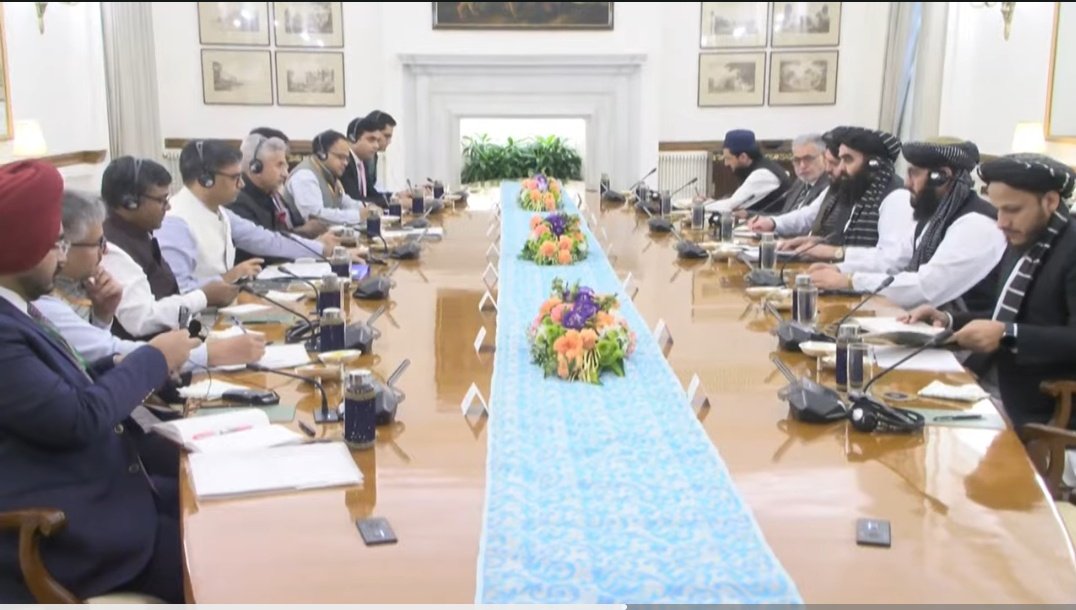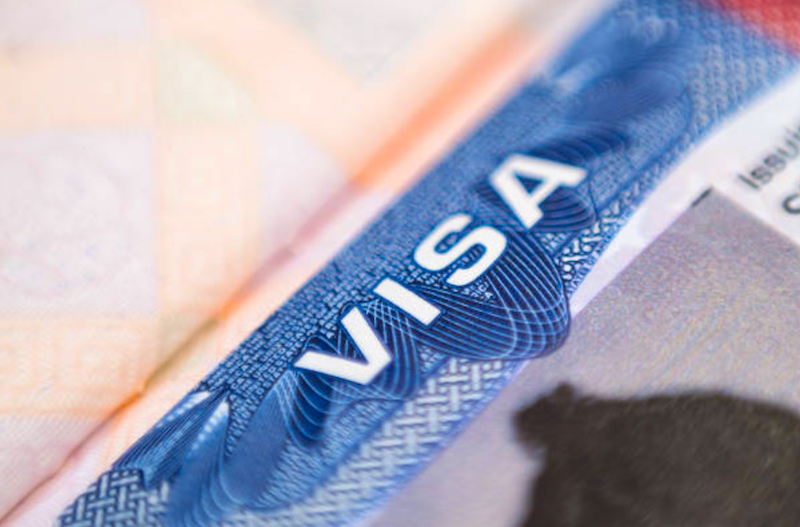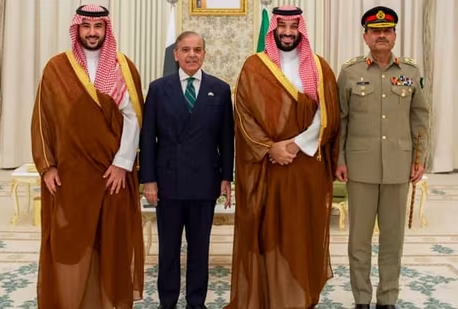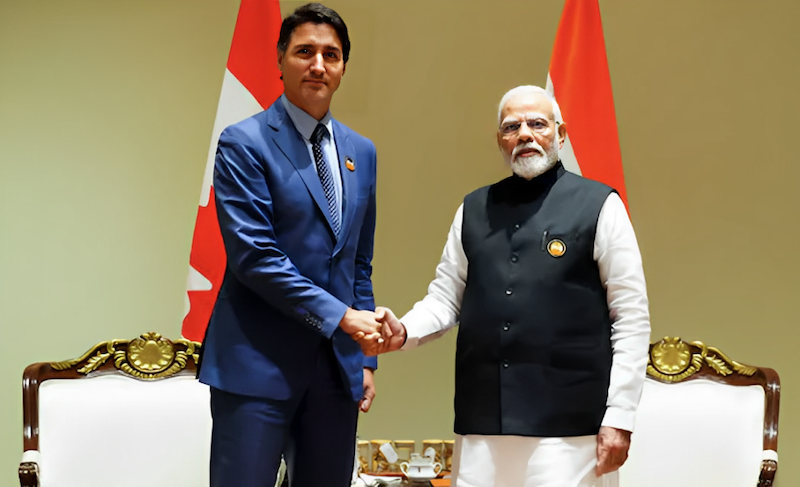 Narendra Modi (R) with Justin Trudeau during their brief meeting in Laos.
Narendra Modi (R) with Justin Trudeau during their brief meeting in Laos.
New Delhi: The diplomatic stand-off between India and Canada has escalated after Canada named India’s high commissioner to Ottawa, Sanjay Kumar Verma, as a “person of interest” in the investigation into the murder of Hardeep Singh Nijjar – a pro-Khalistan activist. India rejected the claims, calling them “preposterous imputations”, and, in response, decided to withdraw its high commissioner from Canada.
In a statement, the Ministry of External Affairs (foreign ministry) stated that the baseless targeting of Indian diplomats was completely unacceptable and cited concerns for their safety in an atmosphere of “extremism and violence” and announced the withdrawal of its high commissioner from Ottawa. India also summoned the Canadian chargé d’affaires in New Delhi, Stewart Ross Wheeler, to convey its strong objection to this development.
This is the latest flashpoint in the already tense relationship between the two nations. The diplomatic fallout began in September 2023, when the Canadian prime minister, Justin Trudeau, accused India of having a role in Nijjar’s killing – a claim India vehemently denied. Additionally, New Delhi had requested Ottawa to share evidence of its accusation, which it has not done so far.
Nijjar, 45, was shot outside a Sikh temple in British Columbia, on June 18, 2023, and his death has since become a major point of contention between the two governments. He was a Canadian citizen who was originally from Punjab’s Jalandhar and had been living in Canada for several years. Nijjar was the leader of Khalistan Tiger Force, and a wanted terror suspect in India. He was also the leader of the Canadian chapter of a radical Sikh group called Sikhs for Justice.
It may be noted that in November last year, the United States claimed to have foiled an attempt to assassinate prominent Khalistani activist Gurpatwant Singh Pannun, who has been designated as a “terrorist” by New Delhi under the Unlawful Activities (Prevention) Act or UAPA, on American soil.
The foreign ministry, in its statement, also said Canada’s move to target Indian diplomats in this case undermines diplomatic principles and labelled Canada’s accusations as “politically motivated”. Indian government officials argue that such moves are aimed at appealing to vote banks in Canada’s significant Sikh population, many of whom support the Khalistan separatist movement.
Canada’s actions have also raised concerns about the diplomatic immunity traditionally granted to foreign diplomats, with India accusing Ottawa of violating established norms. New Delhi’s decision to recall its high commissioner and other diplomats is seen as a significant move to assert its position on the matter.
The Hardeep Singh Nijjar case has added a new layer of tension to India-Canada relations, which were already fraying due to disagreements on various issues, including trade and immigration. India has expressed frustration over what it sees as Canada’s leniency toward Khalistani activists operating on its soil. Despite efforts by both sides to maintain economic ties, these political and diplomatic conflicts continue to hinder the relationship.
The recent escalation follows a brief exchange between the prime minister, Narendra Modi, and his Canadian counterpart, Trudeau, at the Asean summit in Laos, where no substantive discussion took place.
The situation remains fluid, with Canada yet to provide concrete evidence linking Indian officials to the crime, and India steadfast in rejecting any involvement. This diplomatic tussle has the potential to further strain ties, potentially impacting the broader geopolitical landscape, including trade and international cooperation on global issues like climate change and counterterrorism.
This development marks a significant setback in India-Canada relations, which have been strained since Trudeau’s initial allegations. India’s decision to withdraw its high commissioner and other diplomats underscores the seriousness of the situation and the need for a resolution to prevent further diplomatic fallout.
Observers believe that resolving this dispute will require diplomatic restraint and a commitment to addressing the underlying tensions that have plagued India-Canada relations in recent years. Both sides will need to navigate these challenges carefully to avoid a complete breakdown in diplomatic relations.




